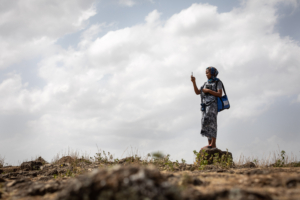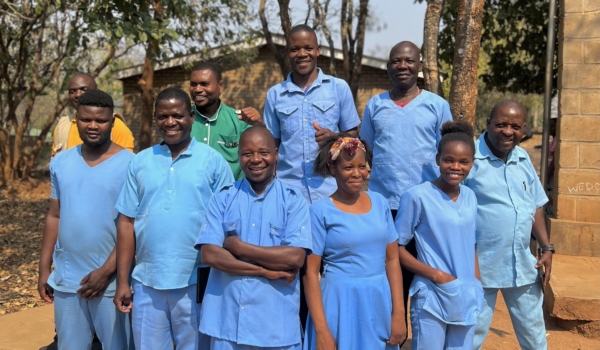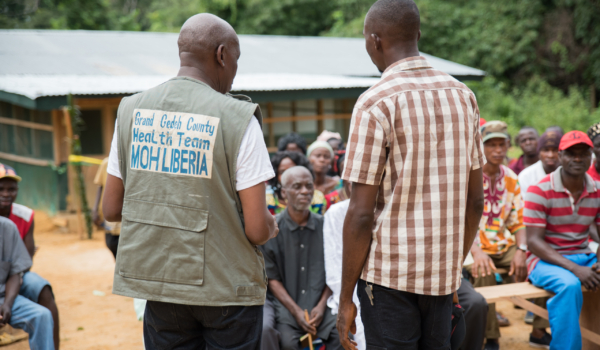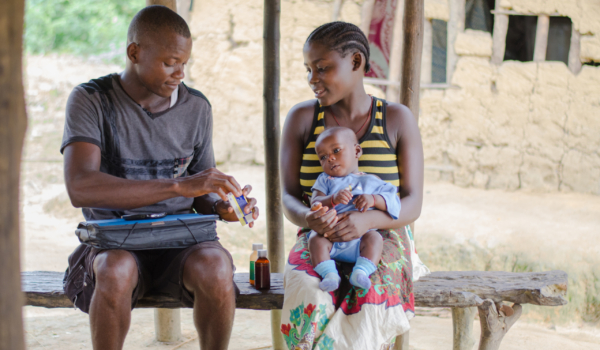by Abraham Zerihun Megentta, Ethiopia Country Director, Last Mile Health
In the early days of COVID-19, Last Mile Health was embedded within Ethiopia’s Emergency Operations Center. With traditional training halted by social distancing, we worked alongside the Ministry of Health to introduce digital solutions—especially for learning.
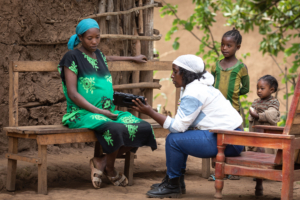
A community health worker uses the Extension Essentials app to help a patient learn about healthy practices during pregnancy.
One of our earliest efforts was the COVID-19 Ethiopia App. It provided accurate, up-to-date training for health workers across the country—free to download. Over 20,000 learners, from every region, accessed the app. For a moment, technology equalized access to knowledge. As long as you had a smartphone and internet, you could learn.
But equity isn’t that simple.
Only 15% of users were women. This wasn’t about willingness or capability—it was about access: to smartphones, to internet, to time. Women, especially in rural areas, face systemic barriers that digital tools alone can’t solve.
The next step in our equity journey was blended learning, delivered through the Extension Essentials app. It provided offline access to courses on reproductive, maternal, newborn, and child health; major communicable diseases; and non-communicable diseases. Preloaded on Ministry of Health tablets and used for in-service training, this solution reached community health workers (known nationally as health extension workers)—the vast majority of whom are women.
This approach built on nearly two decades of health policy that empowered women community health workers to lead community health programs. In doing so, it helped close the gender gap in digital learning—one we had seen so clearly in the uptake of the COVID-19 Ethiopia app.
We’ve now reached more than 16,000 community health workers through blended learning, covering more than 40% of the network, with a shared vision to reach them all.
And the next step? AI.
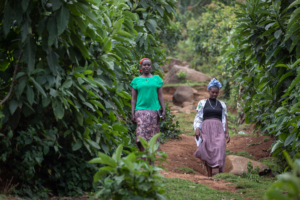
In Ethiopia, community health workers visit patients in remote areas where support on challenging cases has been out of reach–until now.
We’re piloting an innovative tool called HEP Assist—an AI-powered call center designed specifically for community health workers. It gives them instant access to standardized, expert-reviewed advice—helping them deliver better care, in real time. Built with input from 19 Ministry of Health experts, HEP Assist is tailored for quality, relevance, and accessibility.
Equity isn’t just a principle. It’s an ongoing practice.
Sometimes it looks like an app. Sometimes a tablet. Sometimes AI.
And always, it starts with asking, “Who’s being left behind—and how do we bring them along?”
This post was written with help from AI, equalizing my own limitations and helping me clearly and concisely articulate our work—in a language that’s not my first. Another example of how AI can promote equity.

